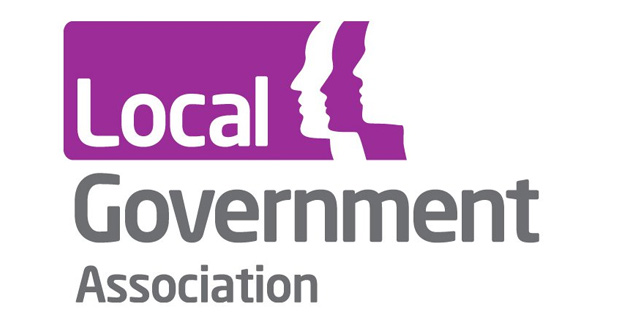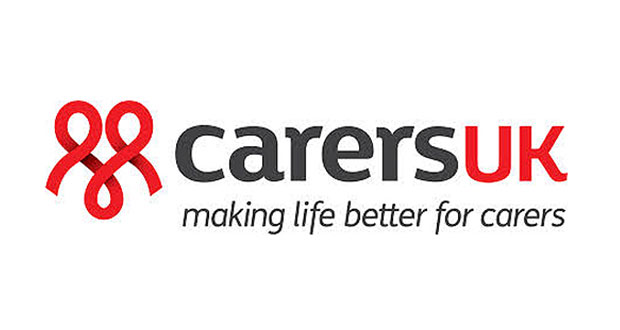Industry Responds To Chancellors Spending Round
The care sector has been quick to respond to yesterday’s spending round announced by the Chancellor. Sajid Javid has promised the largest increase in public spending in more than 15 years as he outlined a £13.8bn package ahead of a possible general election.
Announcing departmental budgets for next year, the chancellor committed the government to a 4.1% increase in expenditure from 2019-20 to 2020-21, in a bid to draw a line under the era of austerity.
Responding to the announcement:
 Cllr James Jamieson, Chairman of the Local Government Association, said:
Cllr James Jamieson, Chairman of the Local Government Association, said:
“We are delighted that today’s Spending Round has delivered a funding package of more than £3.5 billion for our vital local services next year. This is the biggest year-on-year real terms increase in spending power for local government in a decade and will allow councils to meet the rising cost and demand pressures they face in 2020/21.
Industry responds:
“The LGA has worked hard to demonstrate to the Government the financial pressures facing councils next year. We are pleased it has responded to our calls and acted by providing desperately-needed new money next year, including £1 billion for social care and £700 million for children and young people with special educational needs.
“This will help councils as they strive to ensure older and disabled people can live the lives they want to lead, support our most vulnerable young people and continue to improve local areas.
“Confirmation that key grants will also continue next year provides much-needed stability for councils. The ability to levy an adult social care precept again next year helpfully gives them the potential to raise a further £500 million to help people in our communities who need care and support.
“Today’s Spending Round has provided councils with much of the certainty they need about how local services will be funded next year.
“It shows that the LGA is successfully making the case that investing in local government is good for the nation’s prosperity, economic growth and the overall health and wellbeing of the nation. With the freedom and funding to make local decisions, there is clear evidence that outcomes for the nation improve and the country gets better value for money.
“We are ready to work with the Government on how a forthcoming Queen’s Speech can spark the radical legislative programme that will reignite the devolution process so councils can continue to lead their local areas and improve the lives of their residents.”
 Billy Davis, Public Affairs and Policy Manager at Hft commented: “The Chancellor’s pledge of an additional £1.5bn for adult and children’s social care over the next year falls woefully short of the estimated £3bn needed to keep a financially sustainable footing for the adult social care sector alone.
Billy Davis, Public Affairs and Policy Manager at Hft commented: “The Chancellor’s pledge of an additional £1.5bn for adult and children’s social care over the next year falls woefully short of the estimated £3bn needed to keep a financially sustainable footing for the adult social care sector alone.
“With the Prime Minister announcing Theresa May’s planned green paper on social care will be replaced by his own white paper, the publication of which has been delayed, this additional funding feels like a short-term solution to an ongoing problem.
“We believe that the time for short-term solutions is over. This is why Hft, in partnership with Tunstall, is calling for a Sector Deal for the learning disability sector. By incentivising local authorities and providers to invest in the long-term future of their services, we believe we can realise the untapped potential of assistive technologies to offer more meaningful support to adults with learning disabilities. This will not only stimulate innovation, but also help reduce local authority spending in a way that does not compromise the financial stability of the sector, or the quality of support that it is able to provide.”
 Niall Dickson, chief executive of the NHS Confederation, which represents organisations across the healthcare sector, said:
Niall Dickson, chief executive of the NHS Confederation, which represents organisations across the healthcare sector, said:
“Today’s Spending Round provides some much-needed extra funding for the NHS and social care, particularly to invest in new equipment and facilities and to help attract and retain staff through additional cash for training. But these are sticking plaster solutions and do not provide the long-term certainty the NHS needs. Funding still falls short in key areas, including capital investment, social care and public health. Public health in particular has suffered major cuts in recent years and we have an extremely long way to go before that is recovered.
“Some may believe the NHS funding debate is settled following last year’s announcement of £20.5 billion of new funding. But other key areas of health spending were not included and they have only been partially addressed in this Spending Round.
“The extra £1.8 billion in capital funding is welcome but substantially short of the £6 billion needed to clear the massive maintenance backlog that has built up in recent years. The government must increase capital funding to ensure all NHS organisations can access capital investment to address crumbling buildings, failing equipment and outdated IT.
“The additional cash for training and retaining nurses is also welcome but it’s a drop in the ocean. It is not nearly enough to cover the lost funding for continuing professional development that we have seen in recent years and it will not, on its own, address the staffing crisis the NHS is facing.
“The £1.5 billion of extra funding for councils to cover social care is a start but it’s barely enough to enable local social care services to limp on for another year. This hand-to-mouth existence falls well short of what is needed to ensure thousands of vulnerable people, who are not getting the support they need, are cared for. The fact that £500 million of this is dependent on precepts is also disappointing: this risks penalising less affluent areas, where it is much harder to raise funds in this way.”
 Leonard Cheshire CEO Neil Heslop said:
Leonard Cheshire CEO Neil Heslop said:
The additional £1 billion pledged for social care, on top of the £500 million from social care precepts, will help a system at breaking point. But we all need to recognise it only buys time and does not fix the problem. With demand set to rise by almost 4% a year, this will not provide relief for long. The Prime Minister promised to fix social care and those of us whose lives depend on decent care- approximately half of whom are working-age disabled adults- need him to keep his promise and deliver fair, long-term sustainable reforms as a matter of urgency.
Our existing system simply does not work; more than half of disabled people tell us they don’t receive the care they need and the NHS continues to bear the brunt of the care shortfall. We desperately need our political leaders of all parties do their duty now by working closely with disabled people to find a real solution. Brexit may seem all-encompassing, but the social care timebomb is ticking.
 IPPR analysis finds spending review measures do not meet the needs of the health system or patients. Researchers say that this is a hugely important time for the NHS, with a long-term plan to deliver and huge challenges on the horizon. Yet, it faces crises caused by a decade of cuts. IPPR says that three tests – on capital, social care and public health – need to be passed to be confident in the future of health and care.
IPPR analysis finds spending review measures do not meet the needs of the health system or patients. Researchers say that this is a hugely important time for the NHS, with a long-term plan to deliver and huge challenges on the horizon. Yet, it faces crises caused by a decade of cuts. IPPR says that three tests – on capital, social care and public health – need to be passed to be confident in the future of health and care.
Social Care
- The social care system has faced large cuts, creating a huge deficit in provision and leaving many without the care they need.
- The Chancellor gave £1 billion new funding. He also agreed to consult on an additional £0.5 billion funded through council tax rises. IPPR has shown this type of funding is regressive and hits the poorest harder.
- Even then, this amount means little more than kicking the can down the road when urgent system reform is needed. We have waited over 900 days for a social care green paper.
- The best approach would be free provision of social care, at the point of need. The Government’s announcement leaves a £10 billion short of providing equitable care for all by the end of this parliament.
Capital
- Our capital budgets are critical to long-term investment, productivity and patient and staff safety in the NHS.
- Yet fifty years of underinvestment, and a decade of particularly severe cuts since 2010, leave us with a capital crisis.
- The Chancellor provided a one-off injection around £2 billion. Regardless of where this money comes from, and there is doubt over whether this is in fact new funding, this still leaves a £3.2 billion gap between our spend and the average health investment made by advanced economies.
- This will undercut our ability to diagnose cancer early, to maintain the NHS estate, and to modernise a health service reliant on old, breaking machines.
Public Health
- Investment in public health is critical – it creates huge health gains, as well as returns for the tax payer.
- Yet, the ring fenced public health grant has been cut by hundreds of millions since 2014.
- The Chancellor has risen public health spending by 3.4%, in line with the rise to public health spending. But this does not account for years of cuts, and still leaves us with around £500 million less than we need just to have a sustainable system.
Harry Quilter-Pinner, IPPR Senior Research Fellow, said:
“The Prime Minister made social care one of his biggest domestic priorities in his first speech in power. But today’s announcement reveals the truth: lots of bluster but no real action. Only a bold commitment to free personal care in order to ensure everyone gets the care they need without having to sell their homes will finally resolve the care crisis”
Chris Thomas, IPPR Health Fellow, said:
“Today, the Chancellor squandered an opportunity to secure a bright future for health and care. An ambitious programme of investment could have transformed outcomes for patients, secured returns for the taxpayer and empowered the NHS to seize on the innovations available in the 21st Century. Instead, we saw lacking spending commitments that bear little relation to what the system needs and missing every opportunity to improve the nation’s health. The legacy of austerity continues, leaving our cherished health service under significant strain”
 Helen Walker, Chief Executive of Carers UK said:
Helen Walker, Chief Executive of Carers UK said:
“The Government’s proposed £1.5 billion injection for our social care services is a much needed step in the right direction and will help stabilise the current system which has undergone years of underinvestment.
“However, this money will be a short-term sticking plaster if the Government does not swiftly set out sustainable and effective plans to reform our social care system in the longer term. Until these reforms are laid out millions of unpaid carers and the people they support will continue to face exhaustion, financial hardship, isolation, and poor physical and mental health.
“Investing in our social care system and supporting England’s 5.4 million unpaid carers who prop it up go hand in hand. While we would have liked the Chancellor to acknowledge unpaid carers directly, we look forward to understanding the detail and working across Parliament to develop social care reform that has carers at its heart. ”





